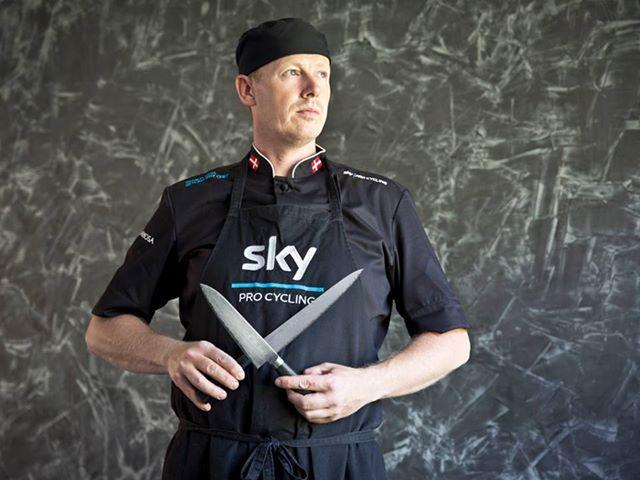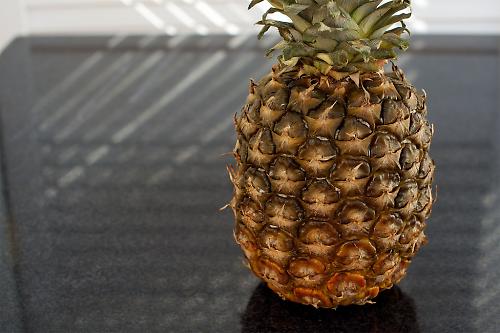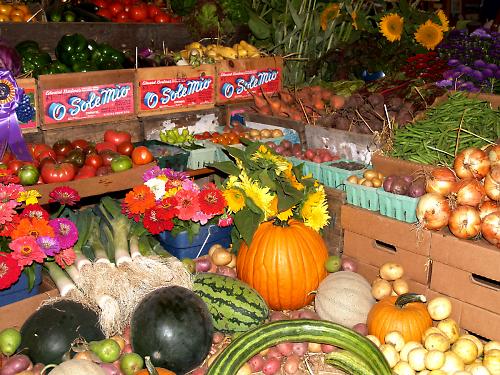- News
- Reviews
- Bikes
- Components
- Bar tape & grips
- Bottom brackets
- Brake & gear cables
- Brake & STI levers
- Brake pads & spares
- Brakes
- Cassettes & freewheels
- Chains
- Chainsets & chainrings
- Derailleurs - front
- Derailleurs - rear
- Forks
- Gear levers & shifters
- Groupsets
- Handlebars & extensions
- Headsets
- Hubs
- Inner tubes
- Pedals
- Quick releases & skewers
- Saddles
- Seatposts
- Stems
- Wheels
- Tyres
- Tubeless valves
- Accessories
- Accessories - misc
- Computer mounts
- Bags
- Bar ends
- Bike bags & cases
- Bottle cages
- Bottles
- Cameras
- Car racks
- Child seats
- Computers
- Glasses
- GPS units
- Helmets
- Lights - front
- Lights - rear
- Lights - sets
- Locks
- Mirrors
- Mudguards
- Racks
- Pumps & CO2 inflators
- Puncture kits
- Reflectives
- Smart watches
- Stands and racks
- Trailers
- Clothing
- Health, fitness and nutrition
- Tools and workshop
- Miscellaneous
- Buyers Guides
- Features
- Forum
- Recommends
- Podcast
 Team Sky chef Soren Kristiansen (copyright Scott Mitchell for Team Sky)
Team Sky chef Soren Kristiansen (copyright Scott Mitchell for Team Sky)Nigel Mitchell reveals Team Sky's nutrition tricks
Nigel Mitchell, head of nutrition a Team Sky and British Cycling, will be doing talks on nutrition this weekend. The first session starts at 11am Saturday July 20 at Sigma Sport in Kingston upon Thames, followed by an afternoon talk at 2.30pm
New cycling nutrition kid on the block OTE Sports will also be there, providing samples of their fruit-flavoured gels and drinks.
Mitchell’s tips
Mitchell recently spoke to The Guardian’s cycling reporter Will Fotheringham and revealed some of the techniques he uses to help prepare Team Sky riders for the demands of the Tour de France.
Professional cyclists obsess about their weight, because success in a mountainous event like the Tour is heavily influenced by the rider’s power-to-weight ratio. You get power by training, and you get your weight down by watching everything you eat. Or, if you’re a top British Cycling athlete or a Team Sky rider, by having Mitchell do so for you.
He’s “responsible for whatever goes into the riders’ mouths,” Mtchell told The Guadian.
MItchell said he prefers to teach riders how to plan their meals and cook them, but in extreme cases, he steps in personally. “We had to get Ed Clancy to put on muscle for the London Olympics, for the team pursuit starts. He’s not a domestic god, so I was putting meals in his freezer.”

For Team Sky at the Tour, Mitchell concentrated on helping the riders lose weight without losing fitness.
“Power to weight ratio matters on the road, so you need to get the guys as lean as you can and keep them as functional as you can.”
Riders who switch from track cycling to road racing will lose weight naturally as their bodies shed unnecessary upper body muscle. “The body protects the muscles you are using – that means the thighs, calves and glutes for road cycling – hence they lose a lot of upper body weight,” said Mitchell.
And at this time, the traditional image of pro cyclists consuming mountains of carbohydrate-laden fuel takes a back seat.

“We really focus on protein and its quality,” said Mitchell. “That means omelette as well as porridge for breakfast. We push salads and fruit because of their vitamin content. We encourage certain snacks such as shakes and yoghurts in the afternoon and before bed to keep their protein levels up.
“When they are losing weight you want to cut their energy intake but make sure the quality of protein is still there, so they get leaner but still get fitter.”
But on the bike, it’s carbs all the way. “You have to make sure they keep getting the fuel in when they train – so on the bike they will take in 30 to 60 grams of carbohydrate an hour.”
Fish oil, agave nectar and vegetable juice
No, that’s not the most disgusting alcohol-free cocktail ever, but three key foods Mitchell recommends.
British Cycling riders take two grams of high quality fish oil every day, an idea Mitchell brought along from his previous work in the NHS. “ I was in cancer care, and we used it to help patients keep muscle tone,” he said.
The secret is a fatty acid called icosapentaenoic acid that lowers inflammation, reduces muscle breakdown when the muscles are stressed through exercise and improves protein synthesis.
The agave nectar is team Sky’s sugar substitute. Where table sugar is 100 percent sucrose, agave nectar consists of fructose and glucose. It’s sweeter than regular sugar. “It’s a way of reducing non-nutrient energy – you can use half a teaspoon where you would use two of sugar,” said Mitchell.

Finally, fruit and vegetable juices play a major part in both hydration and nutrition for the team.
Mitchell uses dilute fuit juices, particularly pineapple, to help encourage riders to drink. “That way, they’re not just using pure water. You see the guys with the bottles of pale, coloured liquid. It’s usually pineapple juice.”
The team’s chef makes up a different vegetable juice every day. “Carrot, ginger and so on,” said Mitchell. “That pushes the riders’ fluid intake but also the nutrients without putting bulk in their stomachs.”
John has been writing about bikes and cycling for over 30 years since discovering that people were mug enough to pay him for it rather than expecting him to do an honest day's work.
He was heavily involved in the mountain bike boom of the late 1980s as a racer, team manager and race promoter, and that led to writing for Mountain Biking UK magazine shortly after its inception. He got the gig by phoning up the editor and telling him the magazine was rubbish and he could do better. Rather than telling him to get lost, MBUK editor Tym Manley called John’s bluff and the rest is history.
Since then he has worked on MTB Pro magazine and was editor of Maximum Mountain Bike and Australian Mountain Bike magazines, before switching to the web in 2000 to work for CyclingNews.com. Along with road.cc founder Tony Farrelly, John was on the launch team for BikeRadar.com and subsequently became editor in chief of Future Publishing’s group of cycling magazines and websites, including Cycling Plus, MBUK, What Mountain Bike and Procycling.
John has also written for Cyclist magazine, edited the BikeMagic website and was founding editor of TotalWomensCycling.com before handing over to someone far more representative of the site's main audience.
He joined road.cc in 2013. He lives in Cambridge where the lack of hills is more than made up for by the headwinds.
Latest Comments
- LeadenSkies 7 hours 49 min ago
They are buses, not trains. They don't travel at 186mph or take over 2 miles to stop under braking. It should be inherently no more dangerous...
- don simon fbpe 9 hours 14 min ago
I'd go for 'the sun was in my eyes' as a defence, get away with murder with that one...
- PRSboy 10 hours 58 min ago
I have two aero bikes- an Argon18 Nitrogen and an Orro Venturi. I love the way they feel on the road. I also like the style of the deeper section...
- ridein 12 hours 55 min ago
I wonder if you could use a Northwave shoe (w/Speedplay drilling) on the Ekoi pedal. Possibly using one Look pattern cleat hole and two Speedplay...
- Rendel Harris 18 hours 35 min ago
They have here: results at 14.40. The aero bike was roughly fifteen seconds faster than a climbing bike on a descent of around 6 km, so about 3km/h...
- wtjs 18 hours 49 min ago
As I've also placed here the nutter Audi and white van drivers, I've decided to give those no-nonsense keep-the-country-moving BMW drivers a list...
- polainm 19 hours 52 min ago
100% this. Policing mentality is formed by social 'norms', and the cyclist witchhunting across social media is the UK norm. Close passing a person...
- David9694 21 hours 17 min ago
That's a clear 2 points awarded there, but I guess as there's now a 25% tariff you'll only get 1.5
- mark1a 21 hours 28 min ago
Fawkes Cycles is only local if you live near Oldham. That's nearly 300 miles away from me. Also, any retailer that doesn't participate in an...
- David9694 21 hours 30 min ago
Openreach under fire over delays to Amesbury cabinet repairs...
Add new comment
10 comments
Chef!
Now please tell me why the food sold in British supermarkets lacks nutrition and is prohibitively expensive?
Agave Nectar, Pinapples, Pumpkins, Watermelons, Onions, Green Beans, Peppers, Vegs. Seems Elite to me. I would be more impressed if the team rode on Tescos!
Play 'spot the cyclist' game at the grocery store! Look for the pineapples. No points if person is in lycra.
Lance eats Leeks and beans every day !
Glad I'm not on the SKY starvation diet !
"Leeks" is fast and aero position with no strain on the pedals, just fluid movement. "Beans" is a comfortable climbing effort- not going into to the red, instead a slow, comfortable pace- all designed to keep the joints in use, without adding to any strain or injury already incurred.
Keep on gettin'on.
Lance
Fructose bypasses the initial metabolic steps glucose goes through, so its metabolism is less readily regulated in the body. Hence high fructose corn syrup being a bad thing.
Agave nectar, on the other hand, is really expensive, so it must be good for you.
"British Cycling riders take two gras of high quality fish oil every day,"
Is that grams? I'm interested rather than being pedantic.
I think it is grams, although that sounds like quite a high dose.
2000 mg day.
Eh? Table sugar is 100% sucrose, which itself is a glucose molecule and a fructose molecule, and is metabolised as such.
Agave nectar is predominantly fructose. Sweeter than table sugar but not four times as sweet, which he seems to suggest.
If he wants to reduce non-nutrient energy my advice would be to cut out simple added sugar altogether and stick to a reasonable amount of fruit.
Good advice generally, but I'm confused by the conflicting view on agave nectar, for example:
http://www.foodrenegade.com/agave-nectar-good-or-bad/
The article is correct in that agave nectar is no healthier than table sugar. Less 'spiky' (lower GI) but no healthier. In fact the fructose content will do more to make you fat and diabetic than table sugar.